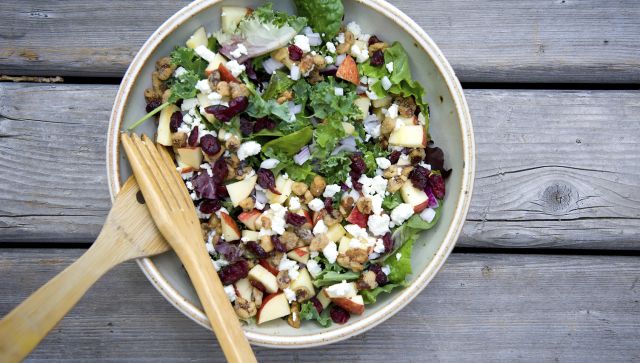Reducing your risk of heart disease is as easy as switching up your diet. Find out from Carra Richling, from Ornish Lifestyle Medicine, how a plant-based diet can promote heart health.
Acute inflammation is the body’s natural response to injury, infection, illness or significant irritation. When the acute response is not effective, however, inflammation can become chronic. This systemic inflammation can cause oxidative damage to our cells, which contributes to heart disease, diabetes, obesity, cancer and autoimmune, neurodegenerative and inflammatory bowel diseases.
There is growing evidence that certain lifestyle behaviors can guard against inflammation, including the food choices we make every day. Research continues to emerge on how a plant-based diet that is rich in antioxidants and certain phytochemicals (such as carotenoids, phenolics and alkaloids with anti-inflammatory properties) can protect against heart disease.
Here are a few tips to promote an anti-inflammatory environment in your body, all of which are part of the nutrition guidelines for Ornish Lifestyle Medicine.
1. Pack in the produce
Choose a wide color spectrum of fruits and vegetables. They’ll provide an abundance of antioxidants, anti-inflammatory phytochemicals and nutrients. Strive for at least five to seven servings a day, including leafy greens and cruciferous vegetables, such as cauliflower, kale and brussels sprouts. Include vibrant orange and yellows along with deep, jewel-colored produce, such as crimson beets, which are phytochemical powerhouses.
2. Power up on plant proteins
Choose plant proteins, such as legumes and soy, are abundant in antioxidants and phytochemicals have been found to protect against inflammatory damage.
3. Spice it up
Turmeric, cayenne and ginger have gained significant attention in their antioxidant and anti-inflammatory actions.
Eat well, be well
Looking for other ways to eat more healthily? Reverse heart disease and diabetes, lose weight and reduce your risk of cancer with these tips from Dean Ornish.
This content was originally published on Ornish Living.






